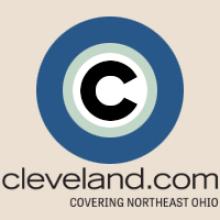
Fast, affordable Internet access for all.

In a letter to the editor published on Oct. 18th at Cleveland.com, Katie Kienbaum, researcher with the Institute for Local Self-Reliance, discussed the benefits a municipal broadband network could bring to Cleveland Heights. She also refuted an earlier piece that cited faulty data in order to claim most municipal networks are failures.
Read her piece below:
Robert Schwab’s opinion piece from Oct. 13 misconstrued the viability of municipal broadband and ignored the many opportunities it could offer Cleveland Heights.
Contrary to Schwab’s claims, most publicly owned networks have succeeded. As support for his argument, Schwab cited a discredited study from the University of Pennsylvania that was thoroughly debunked by my colleagues at the Institute for Local Self-Reliance in the report Correcting Community Fiber Fallacies.
Though there are a few notable failures, the vast majority of municipal broadband networks have achieved the goals set by the communities they serve. The city-owned network in nearby Fairlawn, for example, has found great success since it launched a few years ago. PCMag ranks the network as one of the 10 fastest providers in the country, and more than half the community chooses it over companies like AT&T and Charter Spectrum.
Building a publicly owned network in Cleveland Heights would pressure the incumbents to not only lower prices, but also improve customer service and make infrastructure investments. It would enable Cleveland Heights to invest in smart technologies and to ensure net neutrality, privacy protections and digital equity for its residents.
Past accusations that AT&T digitally redlined low-income communities in Cleveland underline the importance of these guarantees.
Thankfully, city officials are moving forward with a feasibility study, so they don’t have to rely on a debunked academic study when deciding whether municipal broadband is right for Cleveland Heights.
Not only has the ongoing Covid-19 pandemic exposed our nation’s dire lack of medical equipment and protective gear, but it has also shone a light on the inadequacy of our rural broadband networks.
MINNEAPOLIS, MINN. (April 24, 2020) - The Federal Communications Commission has concluded that broadband is being deployed “on a reasonable and timely basis” across America.
Christopher Mitchell, Director of the Community Broadband Networks initiative at the Institute for Local Self-Reliance, recently appeared on Broadband Breakfast Live Online on March 31 to discuss the impacts of the pandemic in the broadband sector. Along with Christopher, the panel discussion was joined by host Drew Clark, Editor and Publisher at Broadband Breakfast, Gigi Sohn from Benton Institute for Broadband and Society, and Ben Bawtree-Jobson, CEO of SiFi Networks. The panelists explained policies to support universal broadband access, shared issues with telehealth, and suggested short-term solutions to bridge the homework gap.
Katie Kienbaum, Research Associate at ILSR, wrote an op-ed that the Orlando Sentinel published on March 5, 2020.
On February 17, Christopher Mitchell spoke on Wisconsin Public Radio's "Central Time" about the need for broadband access in unserved areas and how communities have taken a different approach to increase reliable and affordable Internet access. The discussion also touches on funding program, which is an important factor for local providers to expand broadband infrastructure in rural areas.
Christopher Mitchell, Director of the Community Broadband Networks initiative at the Institute for Local Self-Reliance, recently appeared on Marketplace Tech to discuss security concerns around Chinese equipment used in many rural broadband networks.
